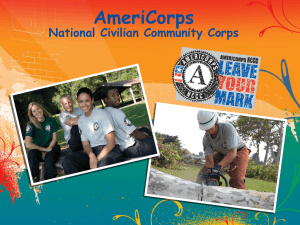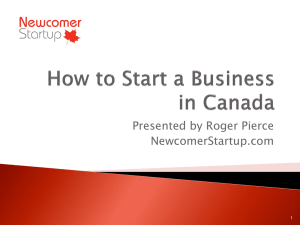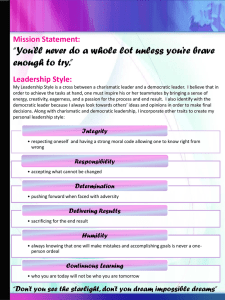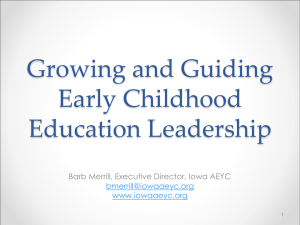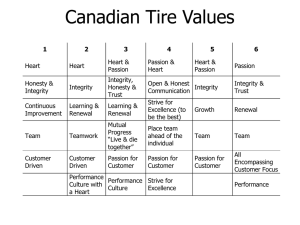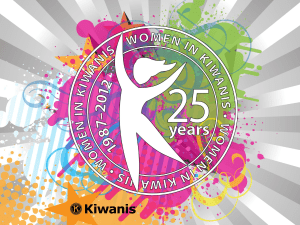Theory of Discovering One`s Passion
advertisement
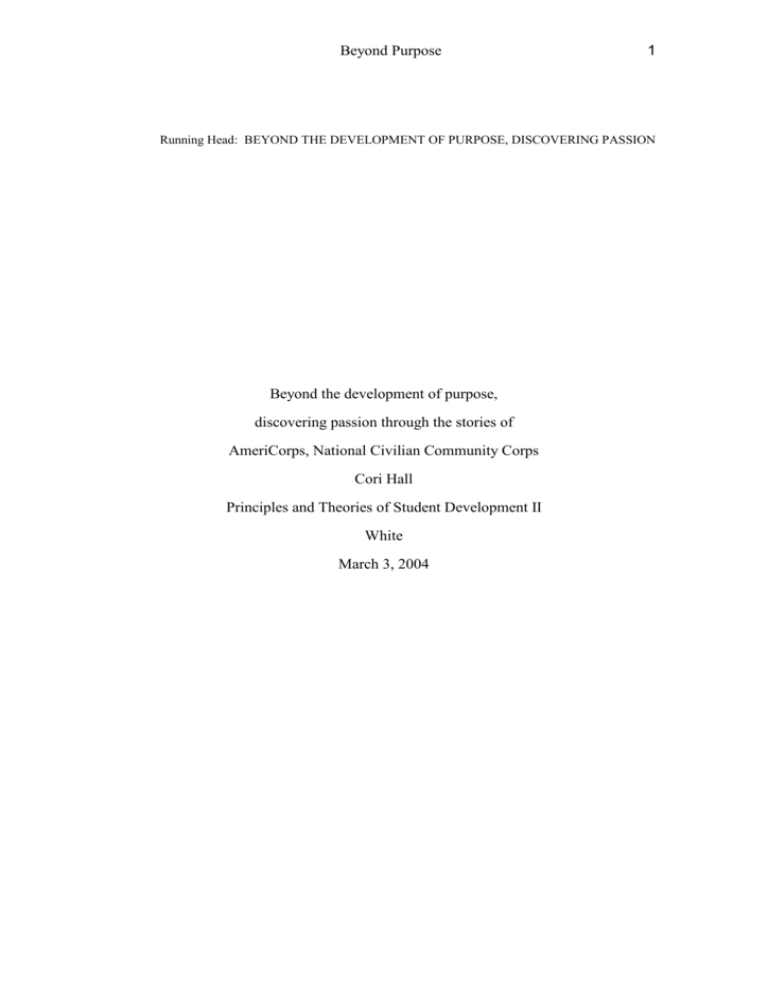
Beyond Purpose 1 Running Head: BEYOND THE DEVELOPMENT OF PURPOSE, DISCOVERING PASSION Beyond the development of purpose, discovering passion through the stories of AmeriCorps, National Civilian Community Corps Cori Hall Principles and Theories of Student Development II White March 3, 2004 Beyond Purpose 2 Beyond thedevelopment of purpose discovering passion through the stories of AmeriCorps, National Civilian Community Corps Why am I here? Where am I going in life? How do my values fit in with my goals? As an individual becomes an adult, these are some of the most difficult questions that one faces. One of the main purposes of higher education is to create an environment of opportunities where students are able to explore these questions. Arthur Chickering’s (1993) model of identity development describes this aspect of one’s identity development through the sixth vector of his theory, entitled, “Developing Purpose.” This vector identifies the factors that contribute to making career and lifestyle decisions. It also stresses the importance of creating personal goals and making commitments according to those goals. Although Chickering’s (1993) sixth vector adds value to his theory, he is missing a very important aspect of one’s self discovery. A person’s life passions often take part in determining the individual goals of a person. It is very inspiring to be in the presence of an individual who has chosen a career that he/she feels passionate about. In this theory I will attempt to shed light on how individuals live their passion by applying ideas from student development theorists and using testimonials written by alumni of AmeriCorps, National Civilian Community Corps. Chickering’s (1993) identity development model is one of the most widely used theories of student development in student affairs. He proposes that there are seven vectors that contribute to the formation of identity. These vectors have direction and magnitude, but progression along these vectors doesn not occur in a linear fashion. The sixth vector of Chickering’s (1993) model attempts to explore the way in which a person intentionally shapes personal goals and a path in life. “Developing purpose requires formulation plans for action and a set of priorities that integrate three major elements: (a) vocational plans and aspirations, (b) personal interests, and (c) interpersonal and family commitments.” (Chickering & Reisser, 1993, p. 212) Beyond Purpose 3 According to the American Heritage Dictionary of the English Language, purpose is the “object toward which one strives or for which something exists; an aim or goal” (American Heritage Dictionary, 1992, p. 1471). How is this different than passion? In contrast, passion is defined as “a powerful emotion, such as love, joy, hatred, or anger.” (American Heritage Dictionary, 1992, p. 1323). As human beings, we are often motivated by more than just rational thought processes. We move toward more than just objects in life. In considering priorities and what is important in life, one has to think about what he/ she cares strongly about. Moving from working toward a purpose to living one’s passion integrates those emotions with choosing a career path. Chickering (1993) fails to recognize the fact that individuals are often driven in life by what they are passionate about. In the quest for purpose in life, many emotions and feelings take part in the choices that we make. This theory is an attempt to shed light on the emotional piece of finding purpose to include the idea that people are often driven by passion. Although Chickering’s (1993) vector does not encompass all that is involved in determining purpose, its main idea can still be applied. I will use Chickering’s (1993) sixth vector as a framework to explore and develop my theory. Chickering’s (1993) vector model is an effective in illustrating the development of passion. It implies that there is a movement toward deeper understanding and further meaning as one explores the things that he/she cares greatly about in life. Although this progression has direction and magnitude, it is not necessarily a confined linear path. Thinking about the discovery of passion can be done in a similar manner. It is important to recognize that determining life goals according to one’s passion does not necessarily only apply to a career path. Chickering (1993) makes a point that a vocation can be more than just a job. “We discover our vocation by discovering what we love to do, what energizes and fulfills us, what uses our talents and challenges us to develop new ones, and what actualizes our potentials for excellence.” (Chickering & Reisser, 1993, p. 212) Another way to examine one’s vocation is to look at it as a person’s “life calling.” What is a person put on this world Beyond Purpose 4 to do? A person may be passionate about volunteer work, extracurricular activities, or family. In focusing career goals, one must prioritize the importance of career in relation to what one really cares about. To illustrate the how individuals have discovered passion, I have chosen to use exerpts of a publication entitled, Pass the Fire (2003). Pass the Fire is a collection of stories written by AmeriCorps, National Civilian Community Corps (NCCC) alumni. Individuals in AmeriCorps NCCC spend ten months on a team of twelve people of the ages 18 - 24 working to improve communities in America. The intense joys and challenges of service that corps members experience are life changing. The emotions conveyed in the stories show people with passion speaking from their hearts. Chickering’s (1993) theory is based on interviews performed on college students of a traditional age. NCCC corps members are of the same age and are experiencing many of the same developmental issues that college students are. As a person moves from childhood to adulthood in their late teens and early twenties, the idea of purpose in life is often of prime importance. Societal and familial expectations are that we find direction in order to become an individual. Although NCCC members are not attending formal classes, it is still an institution of development for those involved. Learning happens on the job site and through various service learning experiences that are a part of the program. Because of this, Chickering’s model can be applied to the stories of NCCC members. Rosie Mauk, the national Director of AmeriCorps reflects on the testimonials by NCCC members. “In all of these reflections, you get the sense that service has transformed these young people, reorienting them toward the good of others and of their nation, rather than just themselves.” (Pass the Fire, 2003, p. 1). Her observations touch on the depth of the development that corps members experience throughout their NCCC commitment. My theory consists of a three stage process that one goes through in order to live their passion (see Figure 1). Although displayed linearly, the progression may happen concurrently, or in a cyclical fashion. They are interrelated stages that build on Beyond Purpose 5 one another once they occur. The model acts as a description to the way in which external events affect what happens within a person and eventually affect a certain outcome of that person. Emotional event Internal transformation Goal determination Figure 1. The process that one experiences in developing passion. One must first experience an emotional event that leaves an imprint on that person for the rest of their lives. A situation that triggers intense feeling or inspiration within a person is considered and emotional event. Because of this event a person will experience a change in the way that he/she views the world. I call that change an internal transformation. Because of the event that has touched the person in such a way, it will alter the behavior of the person for the rest of his/her life. An individual’s goal determination will take into account this internal emotional feeling that has been created due to the event. The external effect of the emotional event eventually leads to the change in action, or outcome that the person will exhibit. To further support the idea that an event can lead to change of purpose, it is helpful to think about person environment theories of student involvement. The influence of one’s environment will shape individual experiences and emotional events that occur. Alexander Astin’s (1984) theory of involvement states that the amount personal development that occurs is directly proportional to the quality and quality of involvement that the person puts in a program. NCCC corps members must devote their lives to service for ten months. A corps member is required to relocate, wear a certain uniform, live in close contact to eleven other people, and work as many hours as needed to complete a job. The degree of involvement must be high, or the corps member won’t be successful in completing their service. The commitment that is required in the NCCC program heightens the intensity of the individual corps 6 Beyond Purpose member’s development. Keeping in mind the affect of the environment to one’s development is useful in my theory. The following testimonial from Angeline Kessler, an NCCC alumni, describes the effects of one of these emotional events and touches on the way that her life has changed because of it. Each of us left with names written in our minds, voices ringing in our ears, and stories etched in our hearts forever. Days, months, years from today, when a name is mentioned, we will remember - because on December 6, 2001, we became part of September 11.” (Pass the Fire, 2003, p. 6) This exerpt is from a reflection in which Angeline’s relief work w i t h C r o s s t h e i n A m e r i c a n N e w Y o r k the tragedy of S e p t e m b e r h e r t a s k s c a l l w a s c e n t e r , f a m i l i e s o f t o a f t e r O n e o f a t t h e d e p a r t e d a n d c o n t a c t i n g t h e t h e m t h e i r S h e C i t y w o r k w o u n d e d n e e ds . R e d 1 1, 2001 . c r i t i c a l l y m e e t is describing her team’s disaster t o h e l p f i n a n c i a l had direct interactions with the families who lost loved ones in the tragedy. This emotional event has had an intense effect on her and will forever affect the way that she determines her life’s purpose. After the event, she has experienced a transformation in the way in which she remembers the tragedies of September 11. The creation of the publication of Pass the Fire came about by Dave Breihan, an NCCC member who had a crazy idea one day to collect stories of NCCC members in action and the way that their lives were changed because of service. His story is recounted by Holly Ratkewicz, a woman who helped in the collaborative efforts of putting together the publication. Beyond Purpose 7 Had Dave never opened his mouth to share his idea, none of this would have transpired. Instead, he found his passion, found others that shared his passion, and together they added their voice to create a nationwide buzz about volunteering and community service(Pass the Fire, 2003, p. 2) Dave’s intense experiences in service were his motivating factor to gathering the stories of others in order to spread the word about AmeriCorps. He lived his passion through his actions. He uses the word, fire, to describe the undercurrent of emotion that can happen as a result of service. The effect that his work had on others and the personal experiences that he went through created the desire within himself to spread this fire. The process involved the external experience, along with an internal transformation leading to him acting in a certain way to affect those around him. The passion that Dave exhibits goes beyond the idea of finding purpose. He is looking past the objective goal to that of what invokes strong emotion inside of him. He has chosen to live through this passion. Another NCCC corps member who described significant life changes because of his time in AmeriCorps is Adam Herzog. Adam recounts that: AmeriCorps robbed me of my greed, selfishness, and general desire to accumulate as much dough as humanly possible so that I might own a private island before turning 40. . . Now I need to do something with my life that makes a difference (Pass the Fire, 2003, p. 5) After graduating from an Ivy league business program, Adam turned down a $75,000 per year salary to join NCCC. He had planned to take a year off, and then continue on the “road to riches” until he realized that there were more important things in life. His career goals changed from going into business to applying to law school in order to become a non-profit lawyer. The work that Adam did in Americorps touched him. The personal fulfillment that he gained after making a difference in other people’s lives became of greater importance to his life goals than making money. His passion has become his motivation to dedicate his life to the lives of others. Beyond Purpose 8 Although this theory is focused on the experiences of NCCC corps members, it is extremely applicable in the college setting. In the student affairs profession, it is important to recognize that those of the traditional college age are in the process of finding themselves. Although the previous testimonials are examples of people who are working toward the common good of society, individuals may have experiences that influence their life choices in a less productive manner. Creating an environment in college that positive passions can be explored is of prime importance in practicing my theory. A university with a diversity of outlets and opportunities for students to discover and explore what they care about would be most effective. We can encourage students to go beyond their comfort zone in order to have experiences that will affect them for the rest of their lives. Experiential learning programs are effective ways to do this. This can be done by integrating community service, study abroad, or work experience programs into the college curriculum. Extracurricularly, institutions can provide support for the creation of student organizations focused toward students of all cultures, interests, and backgrounds. Although at times it may be difficult to describe the emotions and feelings that occur within yourself, they definitely affect the way that you go through life. The passion that is created through intense experiences such as AmeriCorps, NCCC will change a person’s life forever. Chickering’s (1993) vector of developing purpose describes the process that one goes through in creating a life path, but it does not do justice to the fact that an intense emotional experience can alter one’s goals in life forever. Beyond Purpose 9 References The American Heritage Dictionary of the English Language (3rd. Ed.). (1992) Boston: Houghton-Mifflin. Astin, A. W. (1984). Student involvement: A developmental theory for higher education. Journal of College Student Personnel, 25, 297-308. Chickering, A. W., & Reisser L. (1993). Education and identity (2nd. Ed.). San Francisco: Jossey-Bass. Pass the Fire, (2003). Retrieved February 15, 2004, from http://www.americorps.org/nccc/passthefire/index.html.
